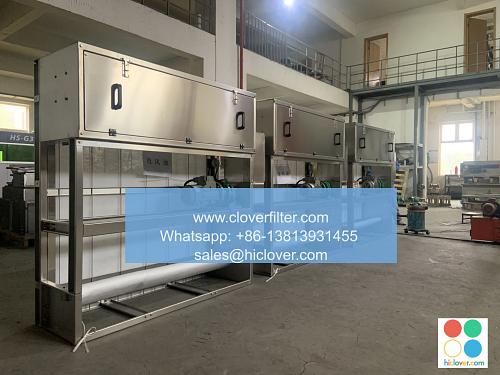Air Filter Maintenance: Why Certification Matters

Proper air filter maintenance is crucial for ensuring the indoor air quality, energy efficiency, and equipment performance in various commercial, industrial, and residential settings. One key aspect of air filter maintenance is certification, which plays a vital role in verifying the air filter’s efficiency, safety, and compliance with industry standards. In this article, we will explore the importance of certification in air filter maintenance, its application areas, and the benefits of using certified air filters.
Certification Standards
There are several certification standards for air filters, including ASHRAE (American Society of Heating, Refrigerating, and Air-Conditioning Engineers), ISO (International Organization for Standardization), and UL (Underwriters Laboratories). These organizations set standards for air filter performance, safety, and energy efficiency, ensuring that certified air filters meet specific requirements. For instance, ASHRAE Standard 52.2 provides a framework for testing and rating air filters based on their particulate removal efficiency and pressure drop.
Application Areas
Certified air filters are used in various application areas, including:
* Commercial buildings: Office buildings, shopping malls, and hospitals require high-quality air filters to maintain indoor air quality and prevent airborne diseases.
* Industrial settings: Manufacturing facilities, power plants, and pharmaceutical industries rely on certified air filters to prevent airborne contamination and ensure product quality.
* Residential settings: Homes and apartments benefit from certified air filters to improve indoor air quality, reduce allergens, and increase energy efficiency.
* Transportation systems: Certified air filters are used in aircraft, automotive, and marine applications to ensure clean air and passenger safety.
Benefits of Certified Air Filters
Using certified air filters offers several benefits, including:
* Improved indoor air quality: Certified air filters can remove up to 99.97% of airborne particles, including pollen, dust, and bacteria.
* Increased energy efficiency: Certified air filters can help reduce energy consumption by minimizing pressure drop and fan energy.
* Extended equipment life: Certified air filters can help prevent equipment damage and premature failure by removing airborne contaminants.
* Compliance with regulations: Certified air filters ensure compliance with industry standards and regulations, reducing the risk of non-compliance fines and reputation damage.
Conclusion
In conclusion, certification matters in air filter maintenance as it ensures the air filter’s efficiency, safety, and compliance with industry standards. By using certified air filters, individuals and organizations can improve indoor air quality, energy efficiency, and equipment performance in various commercial, industrial, and residential settings. When selecting air filters, look for certifications from reputable organizations such as ASHRAE, ISO, and UL to ensure you are getting a high-quality product that meets your specific needs. It seems like you forgot to include the prompt. Please go ahead and provide the prompt, and I’ll do my best to assist you. I can help with a wide range of topics, from answering questions to generating creative content. What’s on your mind?

